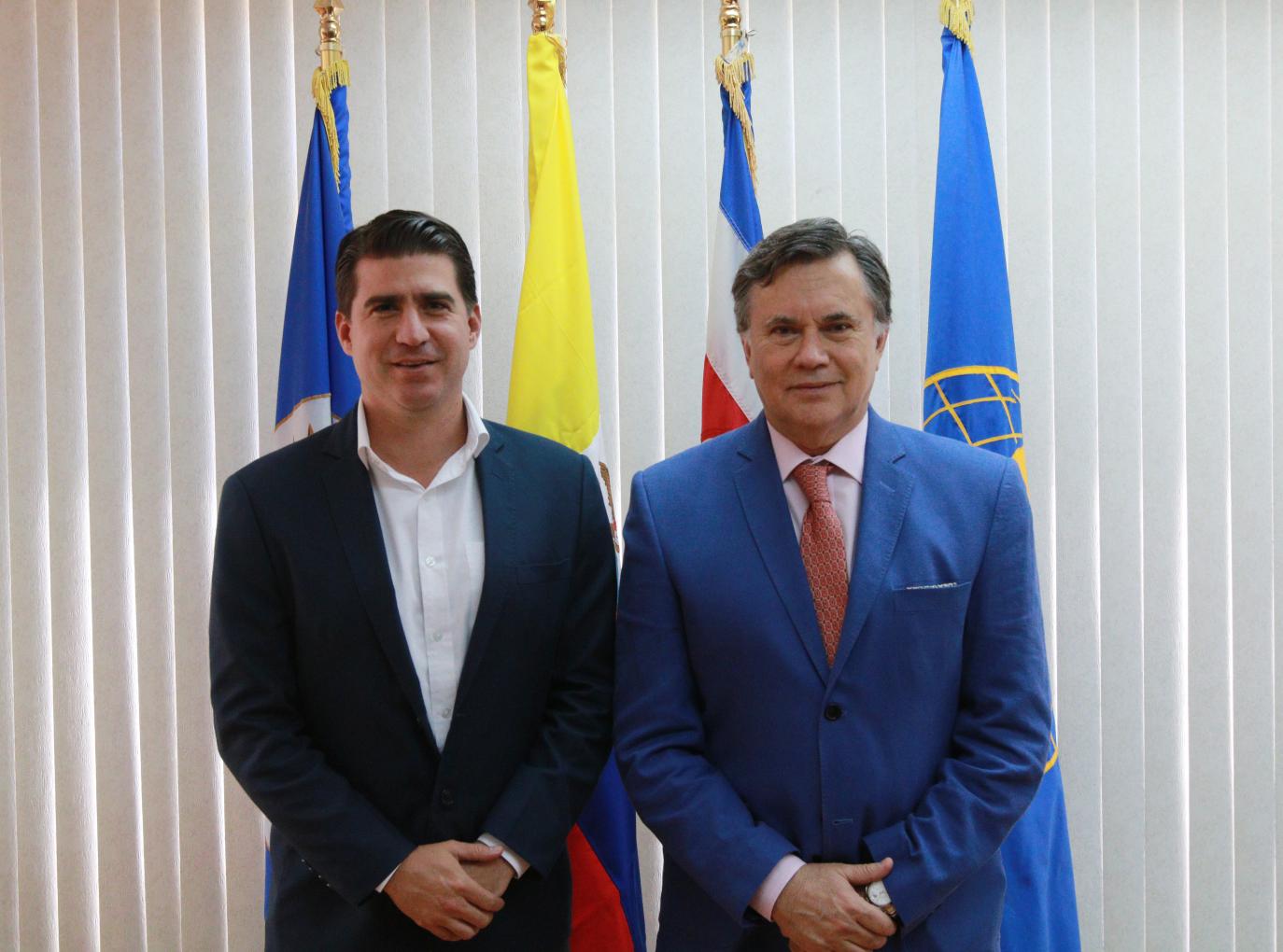Xavier Lazo Guerrero, Minister of Agriculture and Livestock of Ecuador, had a meeting in Costa Rica with the Director General of IICA, Manuel Otero, and expressed his intention to strengthen the agriculture and livestock sector through cooperation.

San José, 11 December, 2018 (IICA). Ecuador’s Minister of Agriculture and Livestock, Xavier Lazo Guerrero, shared his country’s desire to develop stronger ties with the Inter-American Institute for Cooperation on Agriculture (IICA) and to ensure that cooperation efforts are more solid, stronger and more practical, thereby assisting the Andean country to fulfill its agricultural production objectives.
The senior official made these statements following a visit to IICA’s Headquarters in San José, Costa Rica, where he met with the Director General of the specialized Inter-American agency, Manuel Otero.
“We are here to ensure that our cooperation with IICA is much more solid, strong and pragmatic, envisaging the kind of agriculture sector that we want for Ecuador in the coming years. We want to strengthen this relationship. We are hoping to align ourselves with what we need as a country and with the tremendous support that cooperation can provide. IICA has a wealth of experience and knowledge”, said the Ecuadorian Minister, who gave details on the programs in his portfolio related to gender and youth in rural communities.
Having outlined Ecuador’s need to tackle rural poverty, improve productivity and increase technology use in the agriculture sector, the Minister gave his assurance that the objectives of President Lenin Moreno’s public policies on agriculture are to regulate the country’s export supply, concretize production chains, use information technologies to improve trade and to provide incentives to assist rural areas to retain their young people.
The Minister also spoke of the Andean country’s need to update its National Agricultural Registry, having not conducted a census since 2000. He remarked that, “In light of this, the search for support to update the information that we have, and which will allow us to develop public policies for agriculture for the next 20 years, is also a matter of urgency”.
Xavier Lazo Guerrero also emphasized the potential of the Ecuadorian agriculture, livestock and aquaculture industries beyond traditional products, such as cocoa, bananas, shrimp, tuna and flowers, and highlighted the role of development banks in fostering production to drive the growth that the country is seeking.
More information:
Institutional Communication Division











